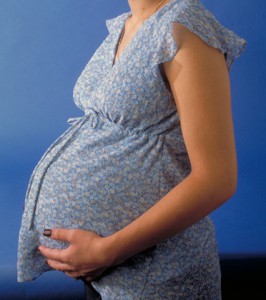Written by Kristin Duncan, Epigenie
How much is too much? If you are pregnant, this is a question that you may find yourself asking your family doctor, pediatrician, or gynecologist. There are a lot of “credible sources” that will tell you one glass of wine wont cause any damage. But before you uncork that bottle of chardonnay, you might want to consider the following.
Fetal Alcohol Spectrum Disorders (FASDs) are the leading cause of preventable mental impairments in North America. Data says that about 14% of pregnant woman report drinking some alcohol during their pregnancy and that 1 out every 100 children in North America are affected. There is a lot of misinformation out there about how much is safe to drink if you are pregnant. While studies will tell you that women who drink heavily during their pregnancy are at the highest risk, if you ask FASD researchers, any quantity of alcohol during your pregnancy is a gamble.
Morgan Kleiber is an F ASD researcher at Western University in the laboratory of Dr. Shiva Singh. Her research has shown that even a moderate amount of alcohol consumed during any time of the pregnancy could lead to an infant having FASD symptoms. “A lot of women think that if they have a glass of wine it’s not going to effect the child. Maybe that’s true for them, but if you have that glass of wine at a very critical stage of development, it could mean that your child will be born with FASD.” Her research also found that there is a “molecular footprint” from alcohol exposure during neurodevelopment, meaning that even a moderate exposure to alcohol has greater implications than we first thought.
ASD researcher at Western University in the laboratory of Dr. Shiva Singh. Her research has shown that even a moderate amount of alcohol consumed during any time of the pregnancy could lead to an infant having FASD symptoms. “A lot of women think that if they have a glass of wine it’s not going to effect the child. Maybe that’s true for them, but if you have that glass of wine at a very critical stage of development, it could mean that your child will be born with FASD.” Her research also found that there is a “molecular footprint” from alcohol exposure during neurodevelopment, meaning that even a moderate exposure to alcohol has greater implications than we first thought.
Ben Laufer is also an FASD researcher and contributed to Kleiber’s work. He decided to take the research one step further and examine whether any epigenetic mechanisms were at play. In his most recent research, Laufer found that life-long alterations to both DNA methylation and non-coding RNAs contribute to the observed life-long changes in gene expression caused by FASD. He says “our research on fetal alcohol exposure has many far reaching implications that are important for every pregnant mother to know. It has negative consequences through out one’s lifetime, and possibly beyond.“
“Not every woman who drinks one glass once a month is going to hurt her baby, but the bottom line is that it is possible, so it’s like Russian roulette and there is no minimal amount that has ever been deemed safe” says Nancy Hall, who is the facilitator for a network of specialized care in Canada.
When it comes to FASD, the spread of misinformation is not just from the media or the Internet, but also from medical doctors and researchers alike. “I think we need to do a better job of educating midwives, doctors, and pediatricians so that they are giving accurate information,” says Shelley Watson, editor of the Developmental Disabilities Bulletin. “You would think that your health care professional is the best person to speak to but research has shown that they are not necessarily all that well informed, which is unfortunate.”
No pregnancy is ever perfect. Stress, diet, environment, and genetic background all play a part in determining the health of your child. Although you can’t control everything in your pregnancy, this is one thing you can control; the best thing to do to ensure your child’s health is to abstain from drinking.
Comments